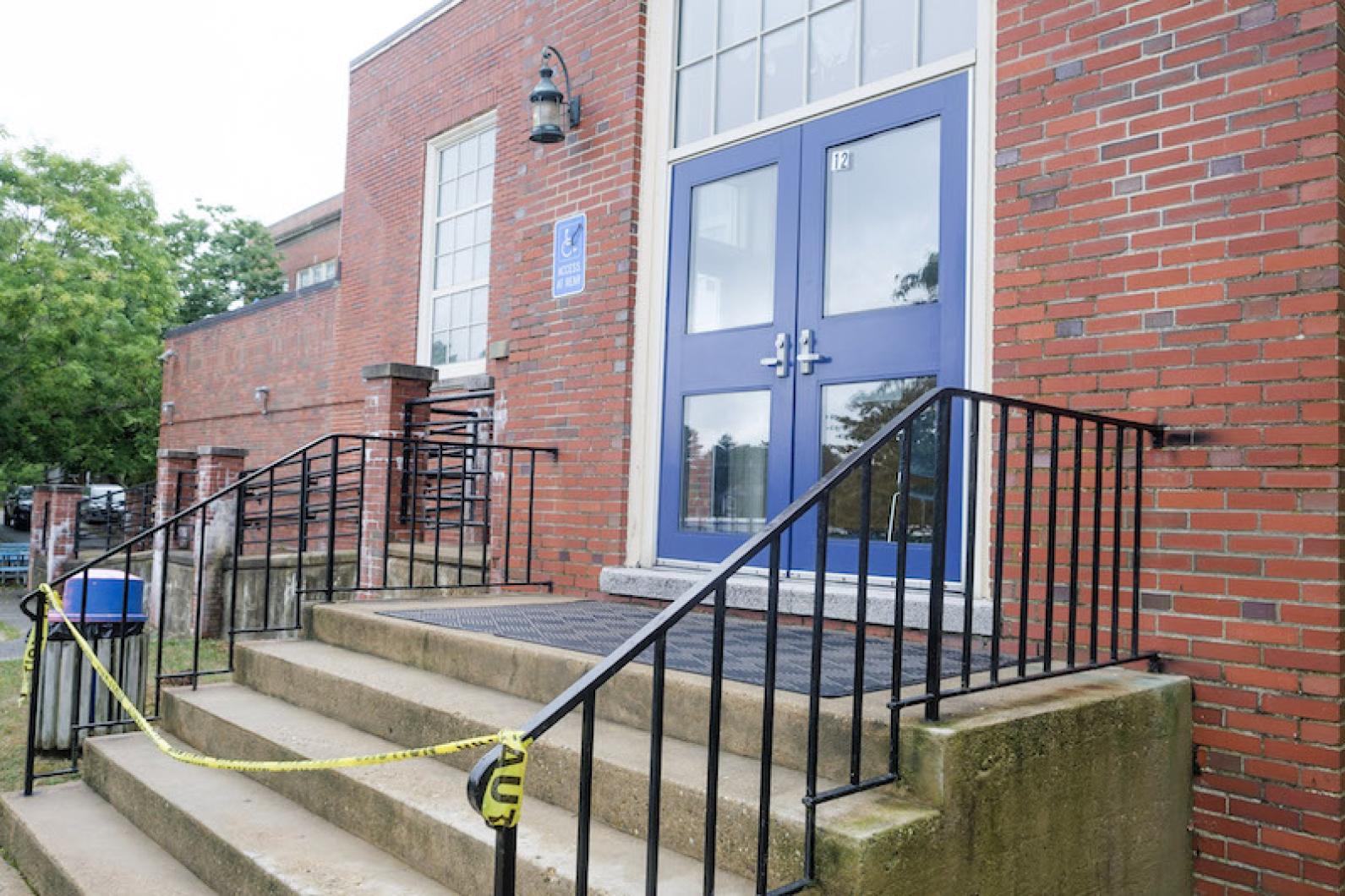The future of the Tisbury School reconstruction project rests entirely on the Sept. 20 special town meeting, after the select board on August 24 unanimously rescinded a town election that was tentatively set for Oct. 4.
The board’s move follows a finding by the state revenue department that the school project’s nearly $26 million cost increase was due to economic conditions, and so does not require a second Proposition 2 1/2 override vote.
“This was a provision created to help municipalities in our situation,” board chair Roy Cutrer said.
A two-thirds town meeting majority is still required to authorize borrowing the $25,610,841 needed to complete the project, for which voters approved $55 million last year.
August 24’s online meeting drew more than three dozen participants including both current and former town officials, several of whom who pleaded with the board to go ahead with a ballot box vote regardless of the state decision.
“It seems to be there is a fear that if you have another ballot vote, there may be an opportunity for voters to turn it down again,” said Melinda Loberg, who was on the select board in 2018 when the last school building measure, a $46.6 million new school project eligible for $14.6 million in state reimbursement, passed at town meeting by a 316-99 vote, but was later defeated at the ballot box 567 to 546, a 21 vote margin .
Planning board member Ben Robinson was also among the speakers pressing for an election.
“Often at town meetings we get … maybe 300 people max, and at ballot votes we get over 1,000 and so one is much more representative of the voters and the taxpayers of the town than the other,” Mr. Robinson said.
Town meetings take place at a set time and voting is often public; ballot votes take place over the course of several hours and votes are made privately.
The Martha’s Vineyard Performing Arts Center, where the special town meeting takes place next month, seats about 700.
Former Tisbury School Building Committee chair Rachel Orr said she would rather see an open-air meeting under a tent, for Covid safety.
Former planning commissioner Tony Peak, who is Ms. Orr’s husband, urged the board to consider that some in town may not feel comfortable voting publicly against their neighbors.
“I just feel that you cannot ignore the dynamics of a small town,” said Mr. Peak, who also asked that the select board commit to polling the special town meeting vote “Australian style,” by secret ballot instead of counting heads.
Town administrator Jay Grande advised the board against Mr. Peak’s request.
“It’s the voters’ town meeting,” Mr. Grande said. “There’s different forms of voting that may be requested … I don’t see any reason why the select board needs to not let the voters determine at town meeting how they want to proceed. I would not recommend to the select board that they interject themselves.”
The select board went on to discuss increasing Tisbury’s residential property tax exemption, which finance director Jon Snyder said would be best considered as part of the annual tax rate classification hearing held in November.
“We’ll have the new assessed values at that time,” Mr. Snyder said.
Talk of a tax exemption for year-round resident owners is mere “political maneuvering,” Mr. Robinson said.
“The residential exemption doesn’t create money out of thin air. It just shifts the burden to somebody else,” he said.
Wednesday’s meeting began with a pair of votes by board members John Cahill and Larry Gomez with Mr. Cutrer abstaining.
The first vote designated Mr. Cutrer, who is a member of the Tisbury School educational support staff, as a special municipal employee, a state classification that allows small-town workers to take part in government affairs.
The second vote also addresses state law, allowing Mr. Cutrer to continue voting on matters related to Tisbury School by accepting his disclosure that he has a contract with the school.







Comments (13)
Comments
Comment policy »